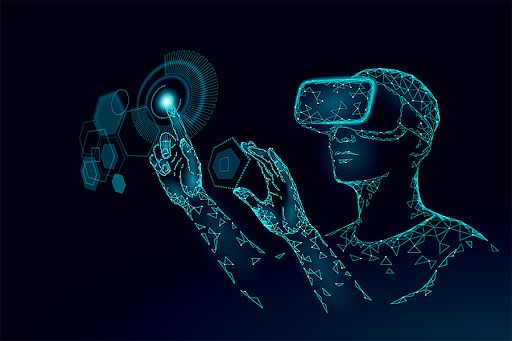News Blast
Your daily source for the latest news and insights.
Reality Check: Are We Living in a VR Simulation?
Explore the mind-bending question: Are we trapped in a VR simulation? Discover shocking insights that could reshape your reality!
Exploring the Simulation Hypothesis: Are We Just Characters in a VR Game?
The Simulation Hypothesis posits that our reality might be an artificial simulation, akin to a highly advanced virtual reality game. This intriguing concept suggests that everything we perceive—our thoughts, emotions, and the world around us—could be merely the product of a complex computer program. Prominent figures in science and technology, including Elon Musk and Nick Bostrom, have fueled discussions around this theory, presenting compelling arguments that there could be an infinite number of simulations existing simultaneously. If this were true, it raises profound philosophical questions about existence, consciousness, and the very nature of reality.
Additionally, the ramifications of the Simulation Hypothesis extend into ethics and our understanding of free will. If we are, indeed, just characters in a vast VR game, then are our choices genuinely ours, or are they pre-determined scripts within this simulation? This thought experiment challenges the foundations of our moral frameworks and compels us to reconsider the significance of our experiences. As technology continues to advance, the plausibility of simulating experiences that rival our own reality may one day lead to broader acceptance of this theory, prompting us to question whether we are simply players or if there is a greater player behind the game.

The Science Behind Virtual Realities: How Close Are We to Living in a Simulation?
The concept of virtual realities and simulations has intrigued both scientists and philosophers for decades. With advancements in technology, we have begun to explore how these artificial environments can imitate our own reality. Virtual realities are created using sophisticated algorithms and hardware, enabling immersive experiences that can manipulate our perceptions. As we develop increasingly powerful computing capabilities, the boundary between our actual reality and virtual experiences continues to blur. This raises a critical question: How close are we to living in a simulation?
Recent developments in fields like artificial intelligence and neuroscience are propelling us toward unprecedented immersive experiences. Virtual environments can now create realistic simulations that stimulate our senses, eliciting emotional and cognitive responses akin to real-life interactions. Researchers are continually trying to dissect the layers of consciousness and reality, further complicating our understanding. The possibility of living in a sophisticated simulation is no longer confined to the realm of sci-fi; it beckons us to ponder the implications of such realities on our perception of existence itself.
What If We're Living in a VR Simulation? Examining the Evidence and Theories
The concept that we might be living in a VR simulation has captivated thinkers and philosophers alike, leading to a spectrum of theories and discussions. One of the most compelling arguments comes from Nick Bostrom's Simulation Hypothesis, which suggests that if it is possible to create highly realistic virtual realities, then it's probable that many beings are living inside them. This idea prompts us to question not only our reality but also the nature of consciousness and existence itself. If we are indeed living in such a simulation, can we discern any evidence? Some proponents point to the limitations of our universe, like the quantization of space and time, as potentially indicative of a programmed environment.
Exploring this idea further, various technologists and scientists have presented theories and hypotheses that support the notion of a simulated reality. For instance, Elon Musk famously argued that the probability of us living in a base reality is slim, primarily due to the rapid advancement of technology. Additionally, the peculiarities of quantum physics, where particles behave unpredictably and appear to exist in multiple states at once, lend credence to the idea that our universe could be an elaborate program. In examining both the philosophical and the scientific perspectives, we confront a profound question: if we are living in a VR simulation, what implications does this hold for our understanding of free will and reality?